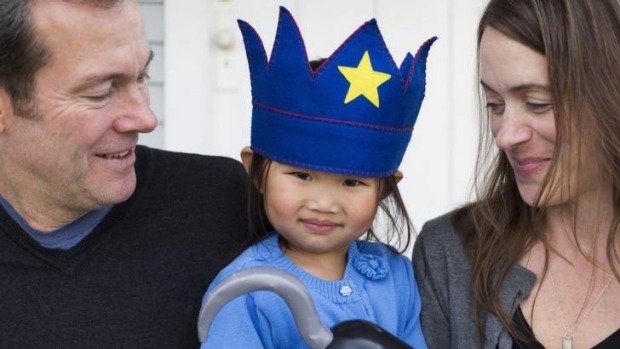
Imagine for one moment your child went missing. Surely you would expect no stone to be left unturned to find them - even if took six months, a year, two, even more.
But how would you feel if your child was permanently given to someone else before this happened? This is exactly what happens to many families around the world. Parents are targeted by recruiters and children are bought or stolen and sold. Other children are lost, separated by war or disaster, or left for temporary safekeeping in children's homes.
In May, Prime Minister Tony Abbott launched a new government agency and website promoting intercountry adoption, repeating the dubious claim that "there are millions of children in overseas orphanages who would dearly love to have parents". It's part of a multi-million-dollar service for prospective and adoptive parents intended to speed up adoptions of children from overseas.
The website rehashes what prospective and adoptive parents already know through state and federal departments. There is no information for adult intercountry adoptees, no additional post-adoption support, no research publications – apart from the Australian Institute of Health and Welfare yearly reports – and no information about who is staffing this call centre. All in all, it's a costly exercise for not much return.
The same pressures we see in Australia are more intense at the international level. For over 60 years the focus of many national governments and adoption agencies has not been on re-uniting children with their families. Instead the aim has been to adopt children as quickly as possible.
Over the years, many cases have shown that even when families do find their children they are not returned once separation is made permanent through adoption. These cases become more complicated and unresolvable the older the children become.
'Quick and easy' runs against proper process
The principle outlined in the Hague Convention provisions on adoption requires governments to consider in-country solutions first. This is one of the issues scheduled for discussion at the Special Commission meeting in June 2015.
According to the Convention on the Rights of the Child, children have a right to be raised by their families, families are entitled to support, and suitable in-country alternative care must be provided.
Where intercountry adoption is an option, re-unification is usually not extensively pursued, if at all. Not finding the child's family, or failing to provide families with support, turns on the green light for adoptions to proceed. Children become "abandoned" or "orphans" on paper for this purpose.
For many, the convention on adoption is interpreted as a means to make adoption happen quickly. Thus, if re-unification with family members takes too long, adoption can be considered.
A child's right to their family is often over-ridden by a Western view of what "family" means, and a sense of urgency for permanency through adoption. Intercountry adoption in the "best interests" of children is well resourced.
This presents complex questions. Children should have stability, but there are other ways of providing good care and stability until the need for adoption is properly determined. The mantra of "children looking for a permanent family" is often used in adoption circles to justify adoption, but at what point does "permanent family" no longer mean their own family? It is important that children are not legally separated from their families and countries until all avenues, including family assistance, are legitimately exhausted.
Adoption as the permanency solution appears to have taken on a religious fervour to the exclusion of all else. But one size never fits all.
This is a condensed version of an article that first appeared on The Conversation. Read the full article here.
Patricia Fronek is a senior lecturer at the School of Human Services and Social Work at Griffith University.